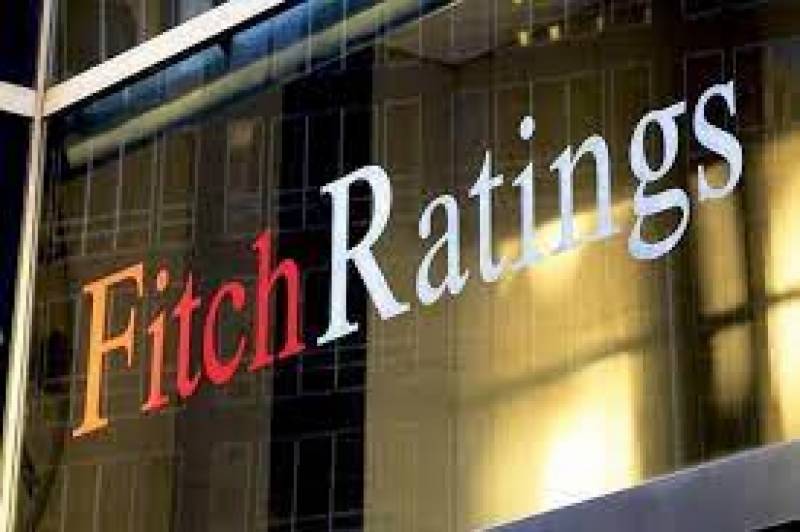HONG KONG – Fitch Ratings has upgraded Pakistan’s Long-Term Foreign-Currency Issuer Default Rating (IDR) to ‘CCC’ from ‘CCC-‘.
“The upgrade reflects Pakistan’s improved external liquidity and funding conditions following its Staff-Level Agreement (SLA) with the IMF on a nine-month Stand-by Arrangement (SBA) in June. We expect the SLA to be approved by the IMF board in July, catalysing other funding and anchoring policies around parliamentary elections due by October,” the international rating agency said in a statement.
“Nevertheless, programme implementation and external funding risks remain due to a volatile political climate and large external financing requirement,” it said.
The agency said Pakistan has recently taken measures to address shortfalls in government revenue collection, energy subsidies and policies inconsistent with a market-determined exchange rate, including import financing restrictions. These issues held up the last three reviews of Pakistan’s previous IMF programme, before its expiry in June, it said.
Most recently, the government amended its proposed budget for the fiscal year ending June 2024 (FY24) to introduce new revenue measures and cut spending, following additional tax measures and subsidy reforms in February. The authorities appeared to abandon exchange-rate management in January 2023, although guidelines on prioritising imports were only removed in June.
It said the South Asian country has “an extensive record of going off-track on its commitments to the IMF”.
“We understand the government has already made all the required policy actions under the SBA. Nevertheless, there is still scope for delays and challenges to implementation as well as new policy missteps ahead of the October elections and uncertainty over the post-election commitment to the programme,” it added.
IMF board approval of the SBA will unlock an immediate disbursement of $1.2 billion, with the remaining $1.8 billion scheduled after reviews in November and February 2024. Saudi Arabia and the United Arab Emirates (UAE) have committed another $3 billion in deposits, and the authorities expect $3-5 billion in other new multilateral funding after the IMF agreement.
The SBA should also facilitate disbursement of some of the $10 billion in aid pledges made at the January 2023 flood relief conference, mostly in the form of project loans ($2 billion in the budget).
Overall Funding Targets Ambitious: The authorities expect USD25 billion in gross new external financing in FY24, against USD15 billion in public debt maturities, including USD1 billion in bonds and USD3.6 billion to multilateral creditors. The government funding target includes USD1.5 billion in market issuance and USD4.5 billion in commercial bank borrowing, both of which could prove challenging, although some of the loans not rolled over in FY23 could now return. USD9 billion in maturing deposits from China, Saudi Arabia and the UAE will likely be rolled over, as in FY23.
Narrower External Deficit: Pakistan’s current account deficit (CAD) has narrowed sharply, driven by earlier restrictions on imports and FX availability, tighter fiscal and economic policies, measures to limit energy consumption and lower commodity prices. Pakistan posted current account surpluses in March-May 2023, and we forecast a CAD of about USD4 billion (1% of GDP) in FY24, after USD3 billion in FY23 and over USD17 billion in FY22. Our forecast CAD is lower than the USD6 billion in the budget, on the assumption that not all of the planned new funding will materialise, constraining imports.
The CAD could widen more than we expect, given continued reports of import backlogs, the dependence of the manufacturing sector on foreign inputs, and reconstruction needs after last year’s floods.
“Nevertheless, currency depreciation could limit the rise, as the authorities intend for imports to be financed through banks, without recourse to official reserves. Remittance inflows could also recover after partly switching to unofficial channels to benefit from more favourable parallel market exchange rates,” reads the statement.
“We expect the consolidated general government (GG) fiscal deficit to widen to 7.6% of GDP in FY24, from an estimated 7.0% in FY23, driven by higher interest costs on domestic debt, which accounts for the difference between our forecast and a GG deficit of 7.1% of GDP in the revised FY24 budget statement (with a lower figure of 6.5% in the medium-term fiscal framework). Fiscal consolidation will drive a slight improvement in our forecast GG primary deficit to 0.1% of GDP in FY24, from 0.5% of GDP in FY23,” it said.
Finance Minister Ishaq Dar has celebrated the development on Twitter. He wrote: “Global Rating Agency “Fitch” Upgrades Pakistan’s Long Term Foreign-Currency rating to CCC from IDR(Issuer Default Rating)”.
Global Rating Agency “Fitch”
Upgrades Pakistan’s Long Term Foreign-Currency rating to CCC from IDR(Issuer Default Rating).Another positive news towards current economic revival journey, AlhamdoLilah.
Congratulations to PM @CMShehbaz ,the Nation, Govt Allies & Economic Team ????
— Ishaq Dar (@MIshaqDar50) July 10, 2023
“Another positive news towards current economic revival journey, AlhamdoLilah,” he wrote while congratulating Prime Minister Shehbaz Sharif and allies and national on the development.













